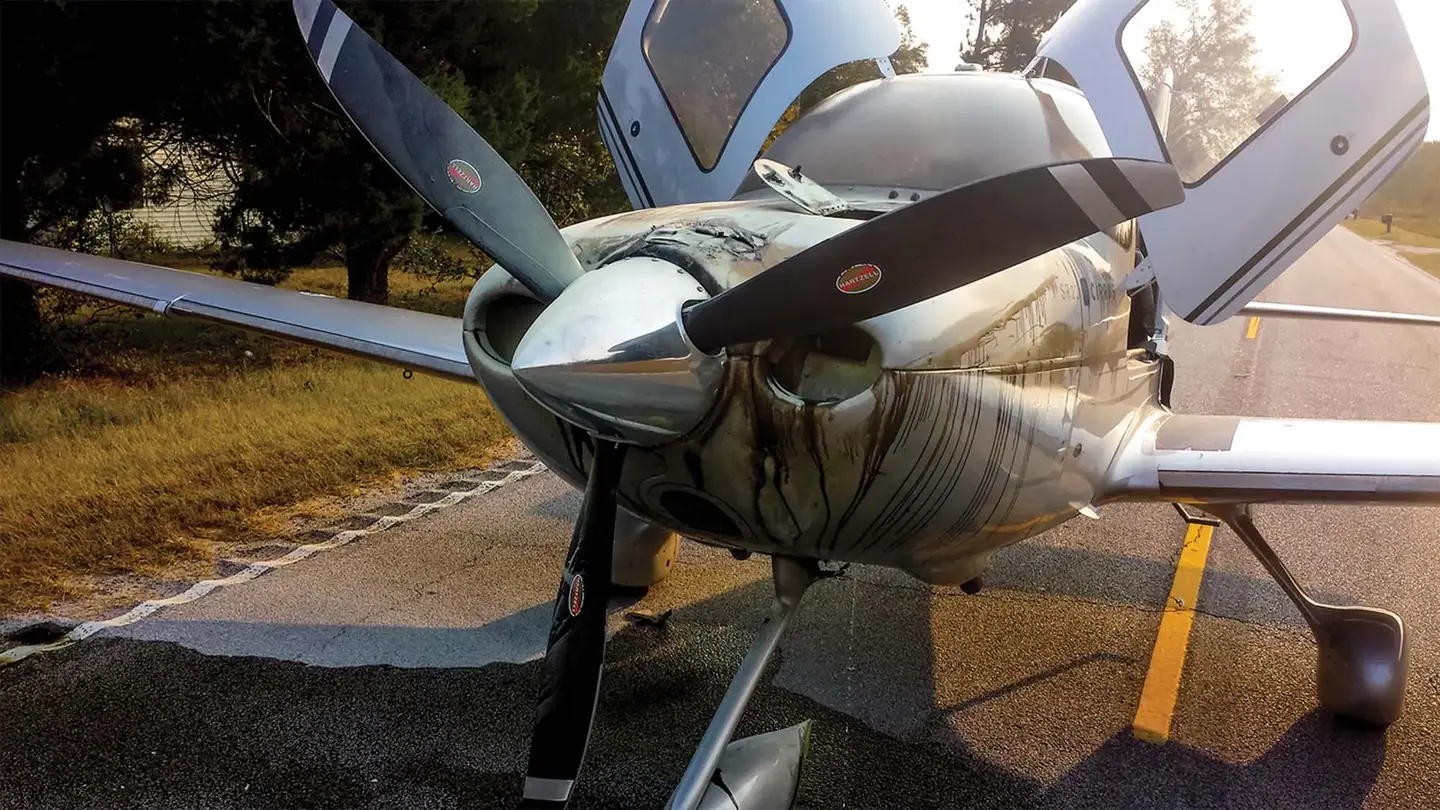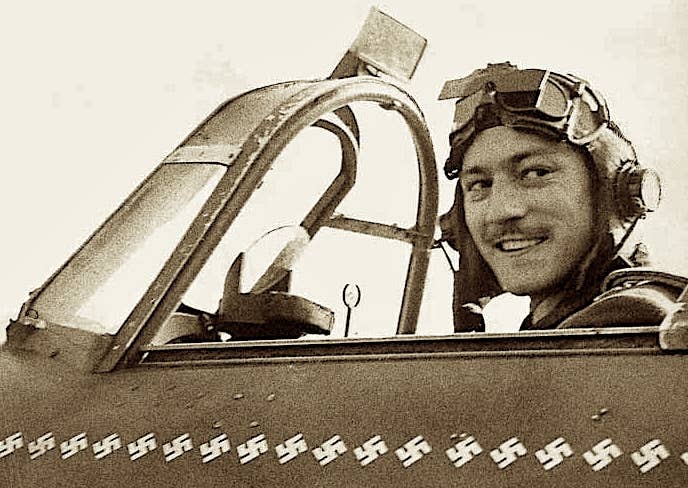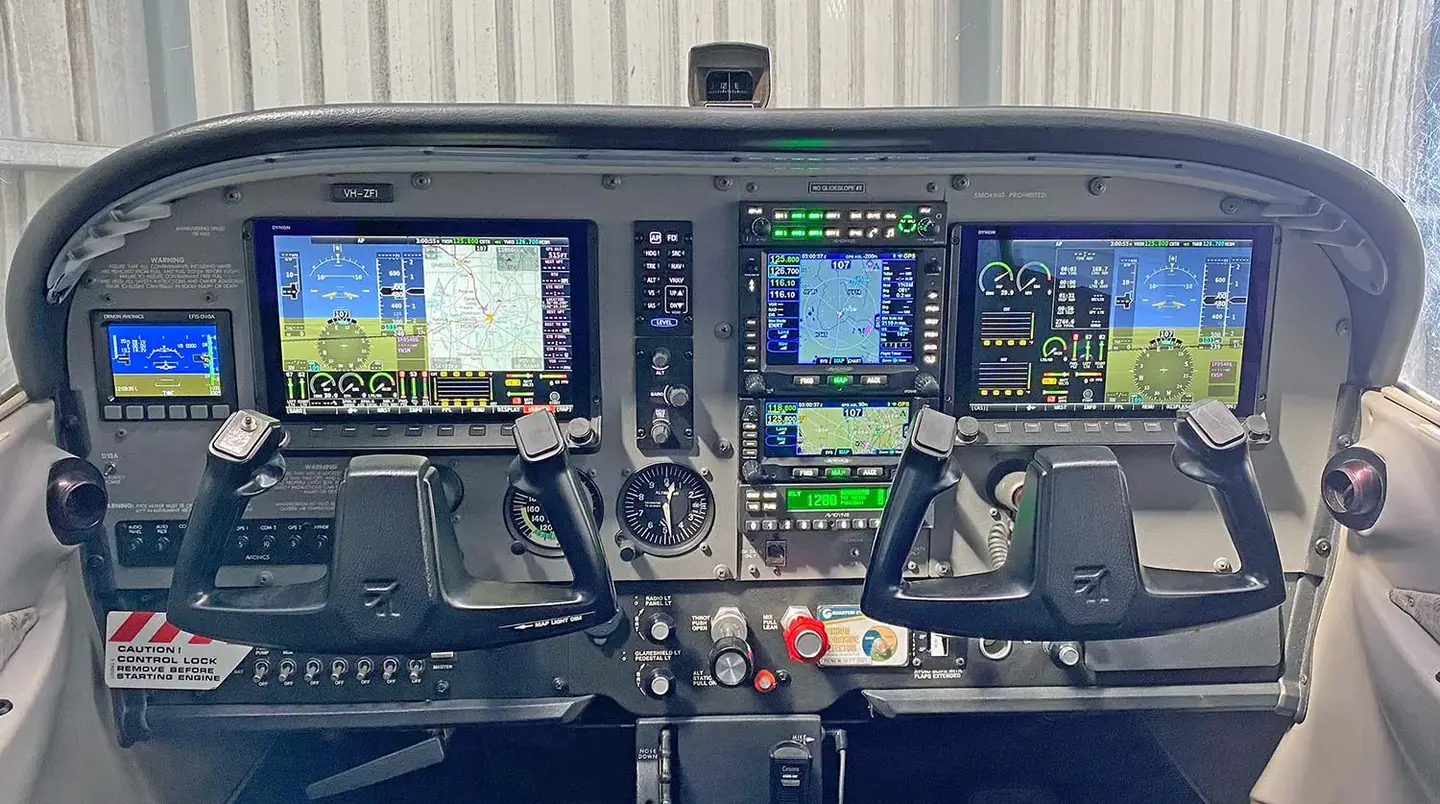Eye of Experience #37:The Place of the FBO in the Scheme of Things
Trying to explain an FBO to a non-pilot can be difficult. First, you have to explain the name itself. Then comes trying to explain the aeronautical equivalent of a gas station, driver school, car rental agency, maintenance shop and, perhaps, restaurant all rolled into one. AVweb’s Howard Fried starts a two-part series – to be finished next week by Rick Durden – on FBOs: What they are, what they do and how they might think about doing it better.
 One of the unsung benefits of being a general aviation pilot is getting to meet and know a lot of different FBOs. A Fixed Base Operator can be anything from a single-purpose business which sells fuel, or supplies, or provides training, or performs maintenance, or sells aircraft, or it can offer a combination of services up to and including all of the above, in which case it is called a full-service FBO. It can be anything from a country store, mom-and-pop operation to a luxurious facility where the pilot can get fuel and a weather briefing via computer or direct line to Flight Service, watch a movie while waiting for passengers, and eat a full meal. I even know of one FBO that, in addition to a luxurious pilot lounge, has a complete health club available for both local and transient pilots.
One of the unsung benefits of being a general aviation pilot is getting to meet and know a lot of different FBOs. A Fixed Base Operator can be anything from a single-purpose business which sells fuel, or supplies, or provides training, or performs maintenance, or sells aircraft, or it can offer a combination of services up to and including all of the above, in which case it is called a full-service FBO. It can be anything from a country store, mom-and-pop operation to a luxurious facility where the pilot can get fuel and a weather briefing via computer or direct line to Flight Service, watch a movie while waiting for passengers, and eat a full meal. I even know of one FBO that, in addition to a luxurious pilot lounge, has a complete health club available for both local and transient pilots.
The Single Most Important Thing
Whatever the size and complexity of the operation, the one, single requirement from the pilot's point of view is that it have adequate and clean restroom facilities. Most pilots are like me - they suffer from TB (tiny bladder) - and when they land and pull up to the FBO ramp they make a beeline for the restroom in order to avoid having a childish accident. The coffee is always on at virtually every FBO facility I've ever visited, and it is usually free (or there's a container for voluntary donations).
On some major airports, the pilot of a small general aviation airplane (single-engine or light twin) may encounter an FBO who doesn't seem to want his/her business. These are the big-time FBOs that cater to the "heavy iron" - the big turboprops and corporate jets in the general aviation fleet. This is similar to the fancy maintenance facility that discourages the little guy. You know - the kind that only wants business from the big-money corporate flight departments.
Other Things ...
Many FBOs provide a "crew car" or "courtesy car" for the use of transient pilots while they are waiting for passengers or weather or whatever. Usually this car, whatever it is called, is offered free of charge, although the very least a user can do is to fill it with fuel prior to returning it. The friendly FBO not only lends the stranded pilot a car, he offers directions to the nearest restaurant, or to several restaurants so the pilot may chose one to his special liking or that suits his appetite of the moment.
 Although offered without charge, all these services cost money, and the only way the FBO can pay for them is through his markup on the goods and services he sells. The FBO considers his investment in these "free" services part of the cost of doing business. He may be offering all this "free" stuff because he's a nice guy, but in the fiercely competitive FBO business it is frequently this good stuff that gives one FBO a competitive edge. And on the subject of competition, did you ever notice the difference in treatment one receives at an FBO on an airport where there is more than one FBO as opposed to those on which there is a single FBO with no competition? Somehow those who have an exclusive right to do business at an airport don't seem to care quite so much for the customer both as respect the price of their goods and the quality of the service they offer.
Although offered without charge, all these services cost money, and the only way the FBO can pay for them is through his markup on the goods and services he sells. The FBO considers his investment in these "free" services part of the cost of doing business. He may be offering all this "free" stuff because he's a nice guy, but in the fiercely competitive FBO business it is frequently this good stuff that gives one FBO a competitive edge. And on the subject of competition, did you ever notice the difference in treatment one receives at an FBO on an airport where there is more than one FBO as opposed to those on which there is a single FBO with no competition? Somehow those who have an exclusive right to do business at an airport don't seem to care quite so much for the customer both as respect the price of their goods and the quality of the service they offer.
Although many of the services offered by the FBO may seem to be for the benefit of transients, the base of the business is the local customer, the guy who bases his airplane at the field. For the local aviators, the FBO offers a gathering place in which to swap war stories and to hangar fly, and this is one of the more important functions of the FBO. If it is a full-service FBO, the locals can buy their fuel, charts, supplies and maintenance there. The local pilot gets to know, trust, and rely on the people at the FBO whether it is a mom-and-pop store or a branch of a huge national operation.
... Service
 And all these services are offered by a small businessman who is struggling along without a government subsidy, or any other financial help. Service is really all the FBO has to offer. Whatever goods and/or services the FBO has to sell can be bought elsewhere for the same or even a slightly lower price. It is the service that he offers that brings the customers back. At the large airports with more than one FBO, it is this matter of service that differentiates them from one another. And the really service-oriented FBO attracts pilots who go out of their way to patronize the place. In other words, some FBOs are so good that pilots will divert to the airport where they are located in order to avail themselves of the services offered.
And all these services are offered by a small businessman who is struggling along without a government subsidy, or any other financial help. Service is really all the FBO has to offer. Whatever goods and/or services the FBO has to sell can be bought elsewhere for the same or even a slightly lower price. It is the service that he offers that brings the customers back. At the large airports with more than one FBO, it is this matter of service that differentiates them from one another. And the really service-oriented FBO attracts pilots who go out of their way to patronize the place. In other words, some FBOs are so good that pilots will divert to the airport where they are located in order to avail themselves of the services offered.
General aviation is the backbone of the entire aviation industry and the local FBO supports general aviation. The FBO and the pilot are mutually dependant upon one another for their very existence. The pilot customer cannot survive without the services of the FBO, and, of course, the FBO could not exist without the pilot customer base upon which he depends for his livelihood. As a pilot I feel quite strongly that since the FBO supports me, I have a duty to support him, and I always try to buy whatever I can from my local FBO. I feel that he has earned my loyalty, and even if I have to pay a slight premium to deal with him, I try to do so.
Two Great FBOs
IFL East ...
 One of the very best FBOs I've encountered in all my years of flying is right at my home base, the Oakland-Pontiac Airport in Southeast Michigan. I'm talking about IFL East. Here the transient pilot can enjoy the amenity of a luxurious pilot lounge, and watch a movie of his choice while passing the deadly hours waiting for passengers. Or he can take the courtesy car, crew car, or whatever it is called (really a van in this case), and go somewhere local for whatever.
One of the very best FBOs I've encountered in all my years of flying is right at my home base, the Oakland-Pontiac Airport in Southeast Michigan. I'm talking about IFL East. Here the transient pilot can enjoy the amenity of a luxurious pilot lounge, and watch a movie of his choice while passing the deadly hours waiting for passengers. Or he can take the courtesy car, crew car, or whatever it is called (really a van in this case), and go somewhere local for whatever.
The helpful line crew at IFL East is outstanding in the service they perform, positioning and fueling aircraft and assisting aircrew with service to passengers. They take your order and they get it right!
There is an extremely well-stocked pilot shop which offers everything from current charts, both VFR and IFR (Jepp and NOS) to books and supplies and clothing as well as minor parts. All this at competitive prices. And if they don't have it in stock, they'll get it for you.
The entire facility is kept clean and neat. IFL East does not perform maintenance, but IFL does at their other facility halfway across the field. All they really offer is superior service in the sale of fuel and line services, including storage in one of the cleanest hangars I've ever seen.
Although IFL East itself is not a full-service operation, in effect it is because what it does not offer, tenants in the building do.
I've saved what may very well be the best for last: On the second floor of the IFL East building is a complete health club with exercise room, sauna, whirlpool, and steam room available to both transients and locals. How about that for service?
... Weatherford Flight Center
 I recently encountered another great FBO. While en route from PTK (Pontiac, Mich.) to ABQ (Albuquerque, N.M.) at dusk I was confronted with wall-to-wall thunderstorms - lightening all around the horizon, so I landed at the nearest airport, which happened to be Thomas P. Stafford Field at Weatheford, Okla. Since they were expecting very strong winds, the wonderful folks there pulled my airplane into a hangar (no charge). They gave me a car (no charge) and directed me to both a good motel and a good restaurant. I was stranded there for two nights and a day, but these people at that city-run FBO that made my stay a pleasant one. How's that for hospitality?
I recently encountered another great FBO. While en route from PTK (Pontiac, Mich.) to ABQ (Albuquerque, N.M.) at dusk I was confronted with wall-to-wall thunderstorms - lightening all around the horizon, so I landed at the nearest airport, which happened to be Thomas P. Stafford Field at Weatheford, Okla. Since they were expecting very strong winds, the wonderful folks there pulled my airplane into a hangar (no charge). They gave me a car (no charge) and directed me to both a good motel and a good restaurant. I was stranded there for two nights and a day, but these people at that city-run FBO that made my stay a pleasant one. How's that for hospitality?
In the terminal at that airport is a neat museum. Weatherford is the hometown of one of America's astronauts. Thomas Staford, after whom the airport is named, had completed an exceptionally brilliant military career prior to being selected for the space program. Now retired, he lives and works in Oklahoma City, not many miles east of Weatherford. He donated a great deal of memorabilia to the museum at the airport in his hometown, and was influential in getting NASA to donate more. The museum is growing with a new building this year and a substantial number of military aircraft on exhibit outside.
Altogether my unscheduled stay in this delightful town was quite a pleasant experience. One of the things I like about aviation is the fine bunch of people on the whole who are involved in it. With very rare exceptions almost anywhere one goes he or she is greeted by friendly and helpful people.
The Other Side of the Coin
 Although it is extremely rare, occasionally one encounters an experience with an FBO that is something less than pleasant. Let me cite an example: Many years ago while visiting relatives in a distant city in another state, I went airport hopping (by automobile), as is my wont. I stopped in at the office of the only FBO and flight school at the busiest general aviation airport in the area. The office was full of people milling around, customers and staff. I waited for my turn at the counter and inquired as to their rates for training. (I collect rate sheets from all over to compare with those at my flight school.) The guy behind the counter literally snarled at me, "Dual or solo?" I replied that I'd just like to know what their rates were, and he again asked (in a nasty tone), "Dual or solo?" I gave up and left.The guy had no way of knowing whether or not I was a prospective student. Had I been a prospect for flight training I would have been lost forever.
Although it is extremely rare, occasionally one encounters an experience with an FBO that is something less than pleasant. Let me cite an example: Many years ago while visiting relatives in a distant city in another state, I went airport hopping (by automobile), as is my wont. I stopped in at the office of the only FBO and flight school at the busiest general aviation airport in the area. The office was full of people milling around, customers and staff. I waited for my turn at the counter and inquired as to their rates for training. (I collect rate sheets from all over to compare with those at my flight school.) The guy behind the counter literally snarled at me, "Dual or solo?" I replied that I'd just like to know what their rates were, and he again asked (in a nasty tone), "Dual or solo?" I gave up and left.The guy had no way of knowing whether or not I was a prospective student. Had I been a prospect for flight training I would have been lost forever.
Just last year I again dropped in at the same FBO and flight school. This time there was no one there but three employees and me. I was totally ignored. While the three staff members stood in a group chatting, I wandered around the open area of the office. After a good five minutes of waiting for someone to approach me and ask if I could be helped, I again gave up and left
A few weeks ago I again dropped in at that place. This time there was only one employee there and no one else in the office. This nice fellow, who turned out to be a lineman and who had been working there only a week, was extremely courteous and polite. Although he was so new at the place he was unable to answer my questions, he couldn't have been nicer. Either top management has effected an attitude change there or the guy was so new they hadn't had time to indoctrinate him in the procedures of nastiness. Next time I'm in the area perhaps I'll find out.
Of course, this was a rare experience. On the whole, wherever one goes he or she will have a pleasant experience with the FBO at whatever airport he/she visits.
|
Editor's Note: Howard's column is the first of two by AVweb columnists on FBOs. Next week, be sure to look for Rick Durden's column, "The Pilot's Lounge # 32: What Pilots Think of FBOs and Some Modest Suggestions." |
Usual Boilerplate: If you have a comment regarding this column, please post it here rather than sending it to me by direct email. That way others may benefit from your input.






